-
2018.12.24
RATIONALE: Peanut is an important food allergen because of its clinical severity and increasing prevalence, especially in some western countries. However few data came from China.METHODS: A careful history; skin prick test for peanut; specific IgE for peanut (ImmunoCAP); peanut challenge test, SDS-PAGE electrophoresis for peanut extract, immunoblot. READ MORE
READ MORE -
2018.12.24
House dust mites (HDMs) represent one of the most important inducers of respiratory allergies worldwide.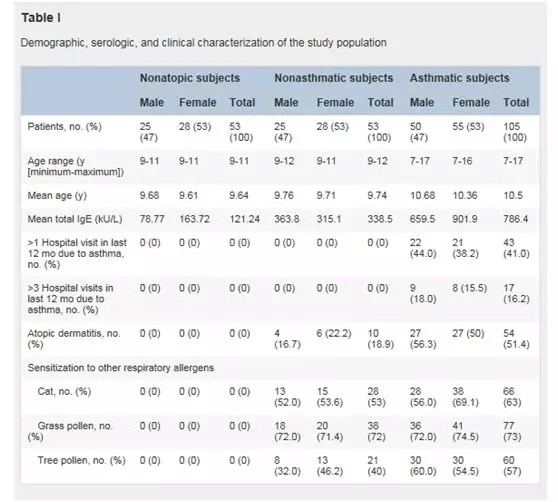 READ MORE
READ MORE -
2018.12.24
Background: Bet v 1 and homologous proteins represent major allergens for almost 95% of patients allergic to tree pollen and approximately 70% of those allergic to fruits and vegetables. As yet, no continuous (sequential) IgE epitopes have been determined for Bet v 1, and evidence has accumulated that Bet v 1 IgE epitopes belong to the conformational (discontinuous) type. Objective: A panel of 85 mouse monoclonal anti-Bet v 1 antibodies was raised as a tool with which to study the interaction of human IgE antibodies with Bet v 1. Methods: The epitopes of selected monoclonal antibodies (mAbs) were characterized by mapping with synthetic overlapping peptides and by cross-competition experiments.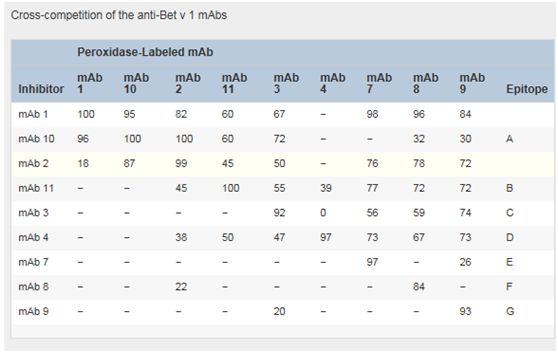 READ MORE
READ MORE -
2018.12.20
Prior studies indicate that hazelnut component testing (HCT) may serve as a better indicator for clinical reactivity than skin prick (SPT) and hazelnut-specific IgE testing (hIgE) in patients with birch pollen allergy. The efficacy of HCT in determining clinical reactivity represents a potential gap in clinical management. READ MORE
READ MORE -
2018.12.20
Tree nuts allergy is one of the most common food allergies. In our study we evaluate the sensitization profile in our population. READ MORE
READ MORE -
2018.12.20
Food allergy to hazelnut occurs both with and without concomitant pollen allergy.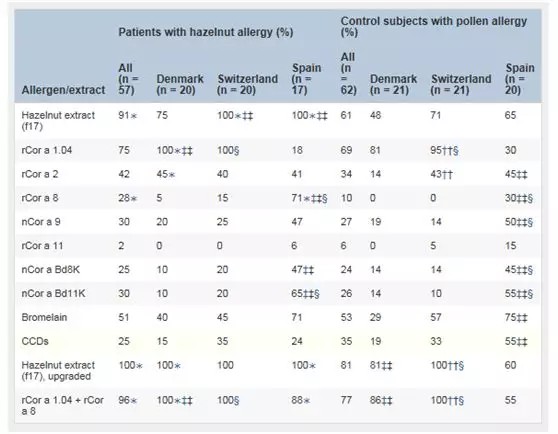 READ MORE
READ MORE -
2018.12.18
Soy allergy is one of the most common food allergies. The presence of IgE specific to soy component storage proteins Gly m4, m5, and m6 has been indicated as a means to improve the specific identification of systemic and local soy allergic reactions. READ MORE
READ MORE -
2018.12.18
Incidence of food allergy is increasing, including diseases with apparently unique pathophysiologic pathways such as eosinophilic esophagitis (EoE), milk anaphylaxis and galactose-alpha-1,3-galactose (alpha-gal) allergy. The role of IgE in these diseases has been well studied, though the contribution of other antibody subtypes, including IgG4, is less clear. READ MORE
READ MORE -
2018.12.18
Previous studies have demonstrated insufficient sensitivity of commercially available celeriac extract reagents in the diagnosis of celeriac allergy. READ MORE
READ MORE -
2018.12.18
Sensitization to wheat flour plays an important role in the development and diagnosis of baker's asthma. READ MORE
READ MORE -
2018.12.18
Detection of IgE to recombinant Hymenoptera venom allergens has been suggested to improve the diagnostic precision in Hymenoptera venom allergy. However, the frequency of sensitization to the only available recombinant honeybee venom (HBV) allergen, rApi m 1, in patients with HBV allergy is limited, suggesting that additional HBV allergens might be of relevance.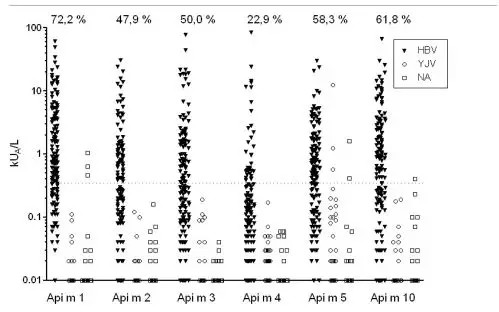 READ MORE
READ MORE -
2018.12.18
Food sIgG and sIgG4 are highly individually versatile. We put a hypothesis that one of the responsible factors is the presence of gastrointestinal inflammatory diseases. The objectives were: 1. An analysis of wheat and rice sIgG and sIgG4 in healthy children, children with IgE-mediated wheat allergy (WA), coeliac disease (CD) and Helicobacter pylori infection (HP). 2. Usability of wheat sIgG and sIgG4 in the WA diagnostics.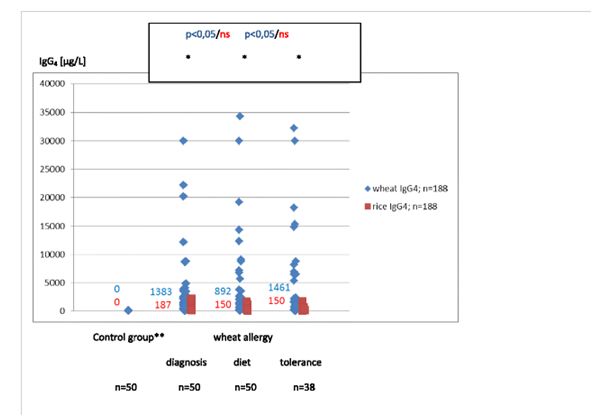 READ MORE
READ MORE -
2018.12.10
IgG4-related disease (IgG4-RD) is a systemic disorder, which is characterized by elevated serum IgG4 concentrations and infiltration of abundant IgG4 positive plasma cells in the multiple lesions. It has been reported the lesions of IgG4-RD present Th2 dominant immunity. And the patient often shows allergic history and/or symptoms. The aim of this study is to investigate allergic involvement in patients with IgG4-RD. READ MORE
READ MORE -
2018.12.10
Allergen-specific IgG4 (sIgG4) antibodies are often associated with tolerance, but sIgG4 antibodies to causally relevant foods have been reported recently in adults with eosinophilic esophagitis (EoE). Prevalence and levels of food sIgG4 are not well established in the general pediatric population.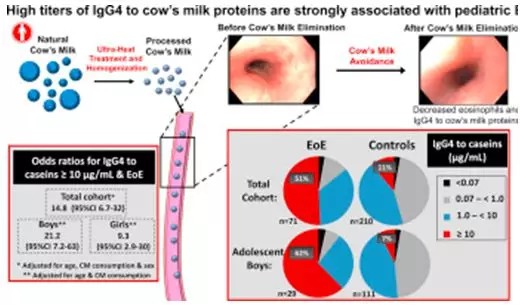 READ MORE
READ MORE -
2018.11.26
Eosinophilic esophagitis (EoE) is associated with specific IgG4 antibodies (sIgG4) to common foods, especially cow’s milk (CM). Little is known regarding the epidemiology of sIgG4 to CM or other foods in the general population. Thus, the diagnostic utility of IgG4 assays is unclear. READ MORE
READ MORE -
2018.11.26
Background: Pollen-food syndrome (PFS) is heterogeneous with regard to triggers,severity, natural history, comorbidities, and response to treatment. Our study aimed to classify different endotypes of PFS based on IgE sensitization to panallergens.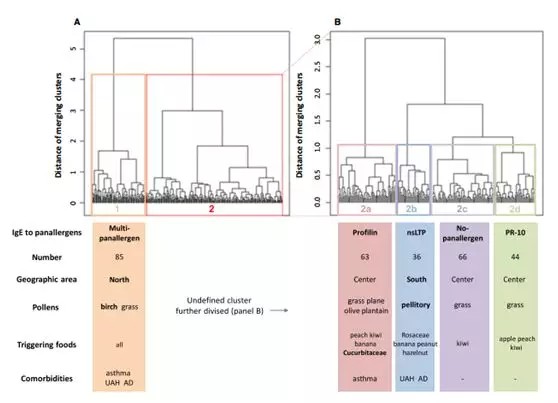 READ MORE
READ MORE -
2018.11.26
Background: The house dust mite (HDM) allergen Der p 13 could be a lipid-binding protein able to activate key innate signaling pathways in the initiation of the allergic response. We investigated the IgE reactivity of recombinant Der p 13 (rDer p 13), its lipid-binding activities, and its capacity to stimulate airway epithelium cells.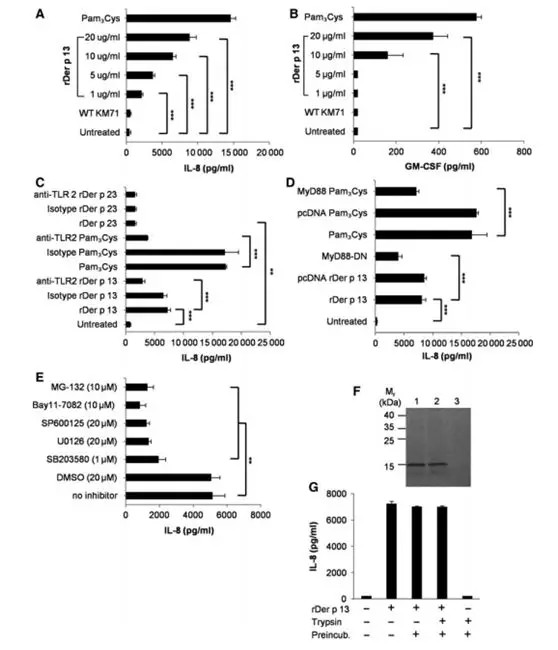 READ MORE
READ MORE -
2018.11.26
Der p 23 was recently identified in a European population as a major allergen and potentially a chitin binding protein. READ MORE
READ MORE -
2018.11.26
Background: Although the genetics of asthma has been extensively studied using both quantitative and molecular genetic analysis methods, both approaches lack studies specific to the childhood phenotype and including other allergic diseases.This study aimed to give specific estimates for the heritability of childhood asthma and other allergic diseases, to attempt to replicate findings from genomewide association studies (GWAS) for childhood asthma and to test the same variants against other allergic diseases.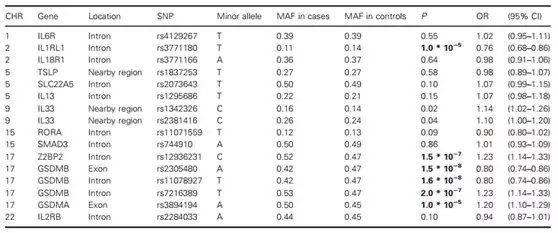 READ MORE
READ MORE -
2018.11.26
Background: The shift in airway smooth muscle cells (ASMCs) phenotype between proliferation and contraction during asthma has been reported recently, highlighting a role of ASMCs plasticity in the pathophysiology of asthma. As an event involved in epigenetic post-translational modification, histone H3 lysine27 (H3K27) demethylation has attracted significant attention with respect to the epigenetic changes in diverse cells; however, little is known about its contribution to the switching of ASMCs phenotype in asthma .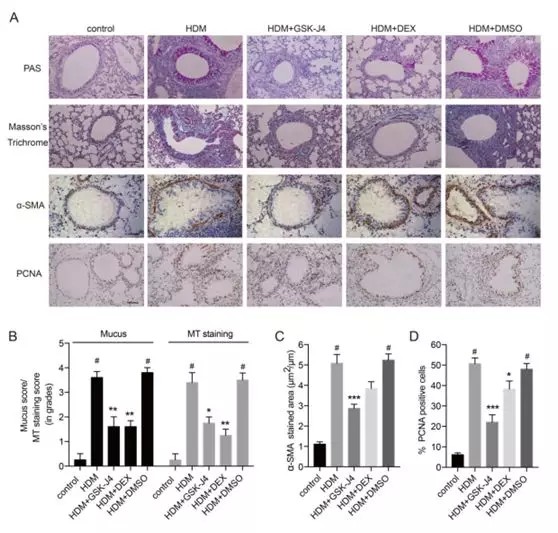 READ MORE
READ MORE
 hth官方网页版中国有限公司
hth官方网页版中国有限公司
